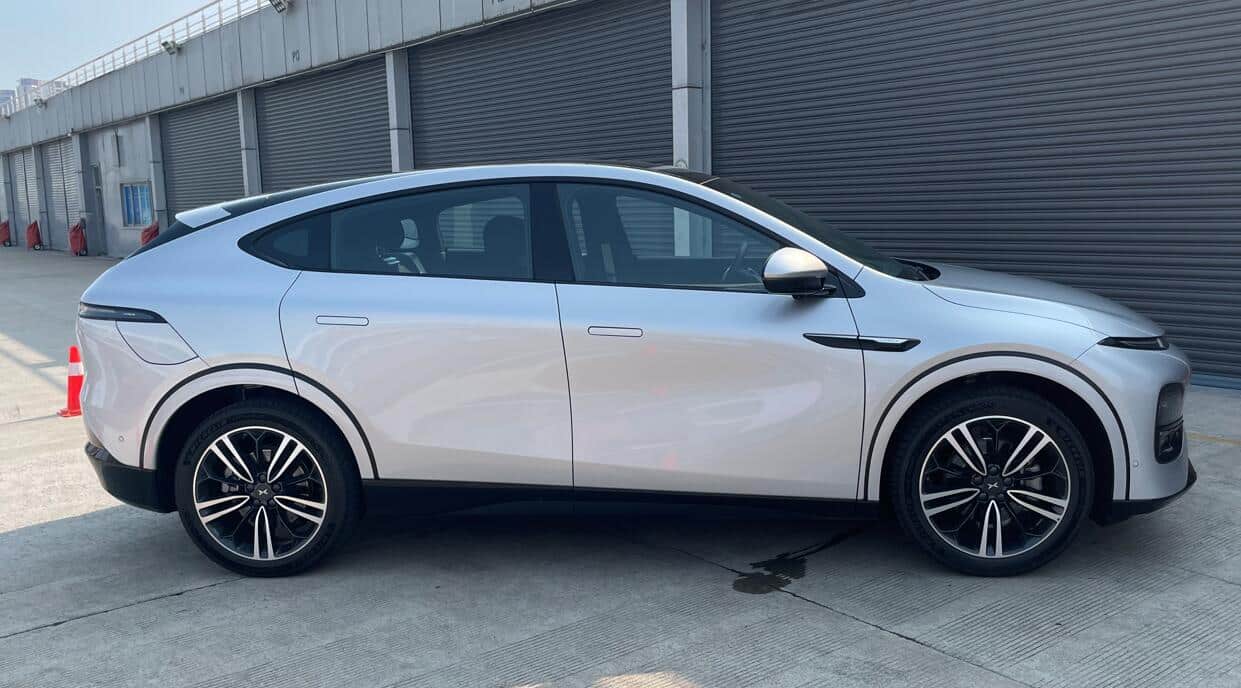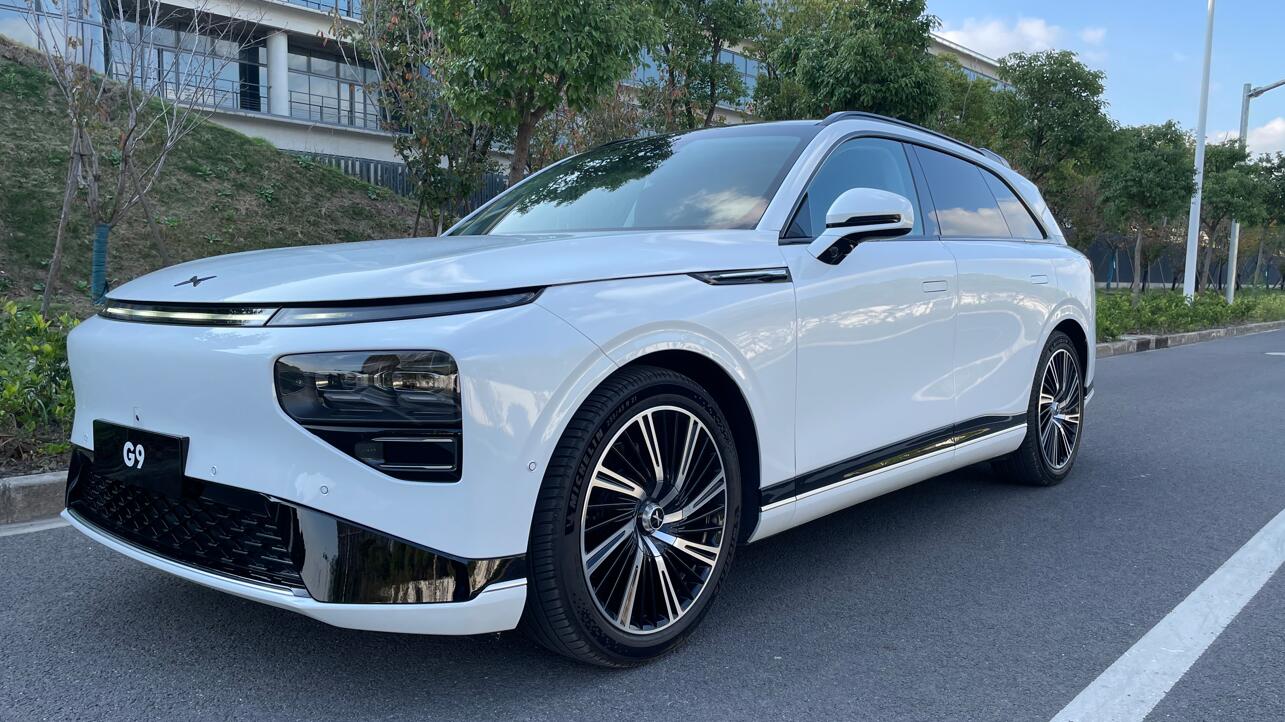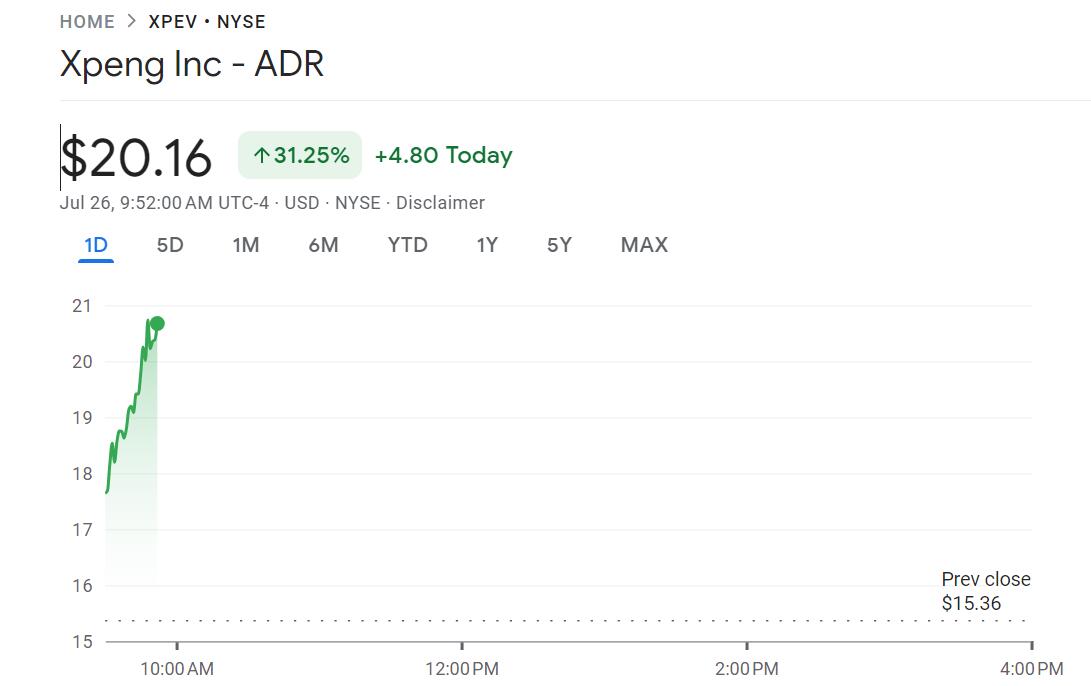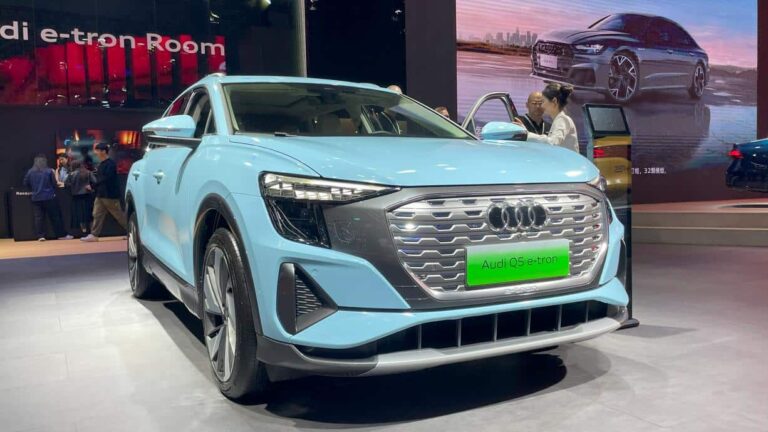Xpeng and Volkswagen will initially co-develop two B-segment BEVs sold under the Volkswagen brand in the Chinese market using Xpeng's G9 platform and ADAS software, with production expected to begin in 2026.
(Image credit: CnEVPost)
German auto giant Volkswagen is investing in Xpeng (NYSE: XPEV) and will co-develop electric vehicles (EVs) with it as it steps up its bet on the Chinese market.
Volkswagen has signed an agreement with Xpeng to invest about $700 million in the Chinese EV maker, acquiring about 4.99 percent of the latter's equity at a price of $15 per ADS, according to statements from the two.
Upon completion of the deal, Volkswagen will gain an observer seat on Xpeng's board of directors.
In the initial phase of the partnership, the two companies plan to co-develop two Volkswagen-branded EV models for China's mid-size car market, according to Volkswagen.
The two new vehicles will complement Volkswagen's MEB platform-based portfolio and are scheduled to hit the market in 2026, the German auto giant said.
The newly established Volkswagen (China) Technology Co Ltd (VCTC) will be its partner with Xpeng in the development area, Volkswagen said.
This technology company is Volkswagen's largest research and development site outside of Wolfsburg, and in the future, it will be home to more than 2,000 R&D and sourcing specialists, Volkswagen said.
Volkswagen's statement didn't provide any more details about its partnership with Xpeng. Bloomberg first reported on the partnership earlier today.
Separately, Xpeng's statement said it and Volkswagen will leverage their respective core competencies, the Xpeng G9 platform, and Connectivity and ADAS software to co-develop two B-segment battery electric vehicles (BEVs) marketed in China under the Volkswagen brand.
Production of these models is expected to begin in 2026, according to the statement from Xpeng.
In addition, the two companies will explore additional potential strategic collaborations in a number of areas, including future EV platforms, software technology and supply chain, Xpeng said.
The G9 is Xpeng's flagship SUV, released on September 21, 2022. The model's confusing pricing system at the time of its launch caused a lot of confusion and affected its sales performance in the following months.
(Image credit: CnEVPost)
Although the G9 is regarded by many Chinese car reviewers as one of the best electric SUVs, it has not been the mainstay of Xpeng's sales.
Xpeng sold 8,620 vehicles in June, with the P7 series sedans contributing 5,196 units, or 60.28 percent, data monitored by CnEVPost showed.
On April 16, Xpeng unveiled its new vehicle platform, SEPA (Smart Electric Platform Architecture) 2.0, under which it hopes to achieve faster model launches and greater cost savings.
On June 29, Xpeng launched the new, lower-priced SUV G6, the first model of the SEPA 2.0 architecture.
"The Volkswagen Group and XPENG each brings in highly complementary strengths into this long-term strategic partnership. We will share Smart EV technologies and world-class design and engineering capability with each other and learn from each other," said He Xiaopeng, chairman and CEO of Xpeng.
"Since the founding of XPENG, we have been developing full-stack technologies from EV platform to Connectivity and ADAS software in house. We are excited about the opportunity to contribute our expertise to the strategic partnership and create value for XPENG and our shareholders," he added.
Volkswagen, an international automaker with a modest presence in China's highly competitive EV market, continues to emphasize its "in China, for China" strategy.
"Local partnerships are a key building block in the Volkswagen Group’s ‘in China for China’ strategy. Together with XPENG, we are now forming a strong cooperation and speeding up the expansion of our local electric portfolio and at the same time preparing ourselves for the next step change in innovation," said Ralf Brandstätter, Volkswagen AG Board Member for China.
"In an intensely competitive and dynamic market environment we are leveraging the partners’ core competences, thus creating synergies to bring additional products to market faster – aligned with the special wishes of Chinese customers. At the same time, we can significantly optimize development and procurement costs," Brandstätter said.
Xpeng's ADRs traded in the US surged on the deal, up more than 30 percent at press time.
The Volkswagen-Xpeng deal is the latest example of a Chinese EV startup receiving international investment.
On June 20, Nio announced that it had signed a share subscription agreement with Abu Dhabi fund CYVN Holdings, which will invest a total of about $1.1 billion in the Chinese EV firm through the issuance of additional new shares and the transfer of current shares. The deal had been completed earlier this month.



